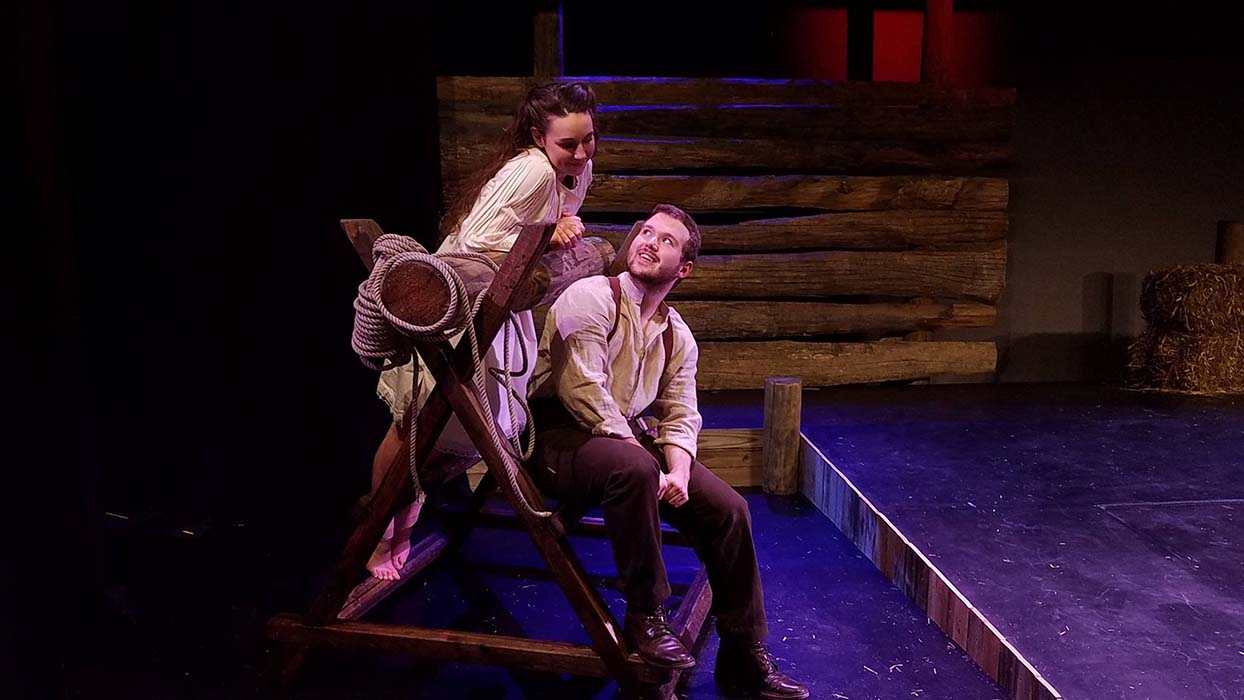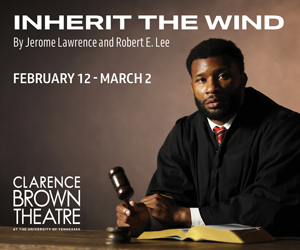A dream forms the structure of Stephen Massicotte’s play, Mary’s Wedding, which opened last weekend at Flying Anvil Theatre—and it is very much the poet’s dream. However, Massicotte has not penned a purely romantic story, but has also made a statement on the idiocy of war and the misguided notions that drive us to it.
Using the dream motif to transcend time and locale, Massicotte begins in 1920, a few years after the end of World War I. The place is somewhere in Canada—and it’s the night before the wedding of Mary, a young Englishwoman transplanted with her family to Canada a few years before. Mary dreams of her first love, Charlie, a local farm boy, and how they met and fell in love. And, as one might guess, the story involves Charlie going off to war.
We meet the two as they first meet, in a barn sheltering from a thunderstorm. Although Charlie is a confident and expert horseman, his softer, vulnerable side is revealed through his irrational fear of thunder and lightning. Mary is obviously attracted to this vulnerability and helps him through it by their recitation of Tennyson’s “The Charge of the Light Brigade” — a foreshadowing of what is to come. After the storm, Charlie gallops Mary home on the back of a horse, yet another metaphor, both symbolic and visual.
Allowing the dream to move around in time, Massicotte paints the couple’s flowering romance, the disfavor of Mary’s mother, and the inevitable trip for Charlie to the trench warfare of Western Europe as a member of a Canadian horse cavalry brigade. In an interesting twist, Mary also becomes Charlie’s commander and friend, Gordon Flowerdew, a reference to a real Canadian World War I hero.
Ultimately, “life goes on” is the conclusion the playwright asks us to make, but hiding just underneath is the unmistakable point that war changes lives for the worse, and we only have ourselves to blame for glorifying it.
Director Jayne Morgan gave the work a pace that flowed lyrically, interrupted with punctuations of dialog and effect. Her choice in casting the two character piece with Emily Helton as Mary, and Robert Parker Jenkins as Charlie, was a definite key to the production’s success.
Jenkins brought a sweet vulnerability to Charlie that contrasted with a farm boy’s rough-hewn sensibility and the misguided idea of “doing one’s share” in war.
Clad only in a night gown throughout her “dream,” Helton was simply brilliant as Mary. Her well-heeled English accent, seemingly perfect and consistent throughout, coupled with a natural, lyrical delivery, served as the basis for a character that was skillfully painted with splashes of empathy, intelligence, and romantic intensity.
In dreamlike fashion, the set (Steve Krempasky) was minimal and functional, populated with a wooden “horse,” some bales of straw, and a floor opening that served as a battle trench. Jon Chemay’s lighting delineated scenes, albeit with some undreamlike saturated colors. The sound effects by Mike Ponder were, in essence, a third actor, supplying the immersive atmosphere of thunder, rain, and battle.
Flying Anvil Theatre’s Mary’s Wedding continues Wednesdays through Sundays, through February 18. Flying Anvil Theatre is at 1300 Rocky Hill Road.






